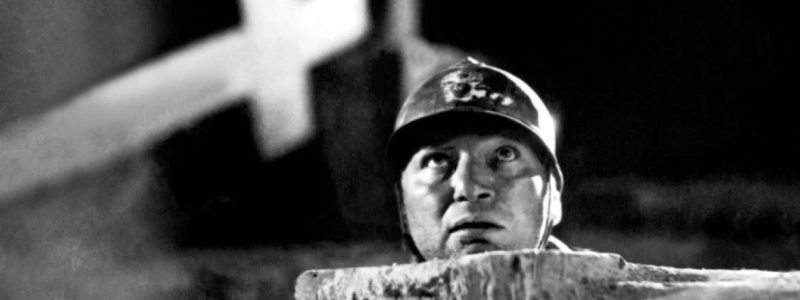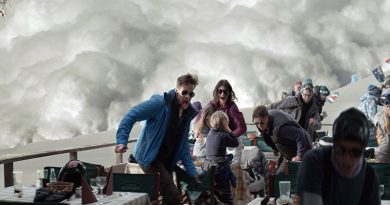Wooden Crosses (PG) Home Ents Review
Dir. Raymond Bernard, France, 1932, 115 mins, in French with subtitles
Cast: Pierre Blanchar, Gabriel Gabrio, Charles Vanel, Raymond Aimos, Antonin Artaud
Wooden Crosses was hailed at the time of its release in 1932 for its searing depiction of the horrors of the European front during World War I; but then fell out of fashion. This is surprising, given the formal and technical audacity of the extended fighting sequences.
Wooden Crosses is every bit as innovative as J’accuse (expressionistic superimposed ghostly shots) and All Quiet on the Western Front (the impressive tracking shots here occur at trench soldier level), as well as being as cynical as Paths of Glory. The Eureka! release presents a dazzling new restoration carried out by Pathé in 2014.
Wooden Crosses tells the story of a raw recruit, Demachy (Blanchar), who joins a company of France’s 39th Infantry Regiment, which has already seen much action in the early years of the war. The unit is full of grizzled old timers who act up for Demachy but ultimately take him under their collective wing.
The film mixes desperately jovial group sequences and superb scenes of warfare. Both undercut any notion of heroics other than a kind of group solidarity amongst the fighting comrades: this is an ensemble piece, a group portrait … not the story of a single hero. The group scenes are a little visually and sonically cluttered, intentionally claustrophobic; the fighting sequence are unbelievable.
Bernard sought authenticity. He used veterans as actors where possible and embedded camerawork “at shoulder height” with the combatants. Particular attention was paid to the recreation and recording of the sounds of different kinds of shells. Bernard and sound engineer Antoine Archimbaud used up to four mics to capture the trajectory of a single shell, placed at different points along its arc. Wooden Crosses showcases state of the art mixing for the day; in fact, the extent of the film’s realism from a visual point of view as well as from a sound standpoint is without precedent.
The film’s moves from group hi-jinks to battlefield hell are mirrored in the sound design:
as effective as the deafening artillery barrages are the silences between them.
The heart of the film is the ‘Ten Days’ sequence – 15 minutes of extended barrage that covers ten days’ combat and captures the deafening nature of prolonged exposure to artillery bombardment. It is so noisy that it may well leave you feeling slightly shell-shocked. This extended sequence is followed by a quieter but more tense scene in which the surviving members of the company find themselves trapped in a cemetery by a sniper. This turns out to be a brief respite before all hell breaks out for another relentless five minutes as the Germans storm the churchyard during an artillery barrage.
There’s another very striking sequence in which the entrenched company listens to Germans undermining their trench and loading the space with explosives – the muffled pickaxe strikes bringing death ever nearer. It’s a brilliant existential moment – extended in time until it becomes almost unbearable.
Wooden Crosses is a must-see for all, because of the technical prowess and power of the key sequences as well as the commemorative aspects which bookend the action.
Review by Colin Dibben
[SRA value=”4″ type=”YN”]
Extras include:
• Video interview with historian Marc Ferro and film historian Laurent Veray
• A short documentary on the new restoration
• Wooden Crosses: A Sonic Adventure, documentary exploring early sound design
• Archival interview with Roland Dorgelès, author of the novel on which the film was based
• Archival interview with Raymond Bernard
• Vintage 1914 newsreels
• Documentary piece on early 20th century poster artist Adrien Barrère
• The Absent Battle, the Omnipresent War, a collection of photography from WWI taken by André Schnellbach who served with Dorgelès in the 39th
• Booklet featuring a new and exclusive interview by film critic Emmanuel Burdeau, and rare archival material
Wooden Crosses is out in a dual format edition on 30 March.



